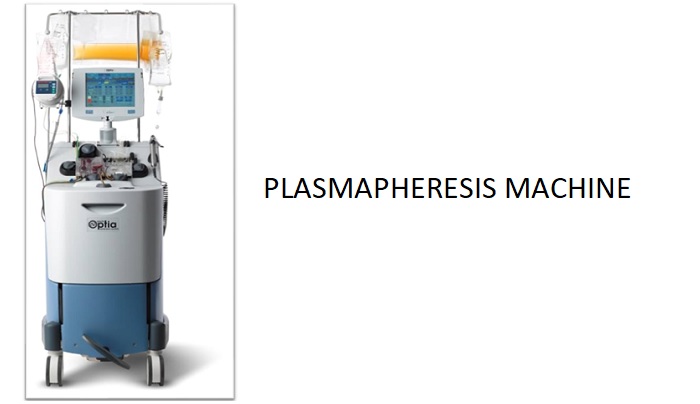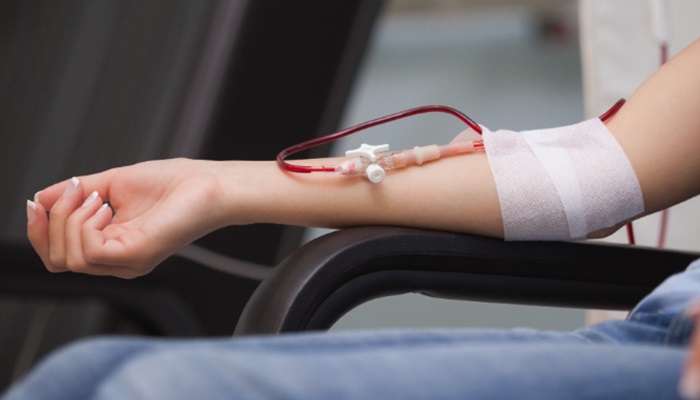Autoimmune diseases occur when the immune system mistakenly attacks the body instead of protecting it. One such disease is myasthenia gravis (MG), a chronic autoimmune disorder that disrupts communication between nerves and muscles, leading to muscle weakness.
Patients with myasthenia gravis often require long-term medication, and in some cases, lifelong treatment. When experiencing flare-ups, symptoms can worsen significantly, sometimes necessitating intensive care unit (ICU) admission.
Myasthenia gravis affects muscles due to abnormal nerve conditions, leading to difficulty in movement, frequent falls, and impaired speech due to vocal cord muscle dysfunction. In severe cases, heart and lung muscles may also be weakened, causing life-threatening complications. When this occurs, apheresis can serve as a crucial treatment to alleviate symptoms and manage the crisis.
Contents
What Is Apheresis?
Apheresis is a medical procedure that enables the extraction or modification of specific blood components, including red blood cells, white blood cells, platelets, and plasma, to treat various medical conditions. It is also referred to as pheresis or hemapheresis.
During the procedure, a centrifuge machine extracts blood from the patient via an intravenous (IV) line. The blood is then spun at high speed to separate its components. Depending on the patient’s needs, doctors can remove or modify specific blood components.
The centrifuge process separates blood components based on density. Red blood cells, being the densest, settle at the bottom, followed by white blood cells, platelets, and plasma at the top.
Using Apheresis to Treat Myasthenia Gravis

In autoimmune diseases, the immune system attacks healthy cells instead of fighting pathogens, causing various symptoms depending on the affected area.
In myasthenia gravis, abnormal antibody accumulation in the plasma disrupts nerve-muscle communication. Apheresis can be used during an MG crisis to remove or modify these problematic antibodies. This specific apheresis procedure is known as plasmapheresis.
Plasmapheresis involves separating plasma from the blood and replacing it with a 5% human albumin protein solution. The modified plasma is then reinfused into the patient’s body via IV or catheter.
By removing the antibody-rich plasma, plasmapheresis helps alleviate symptoms and improve the patient’s condition.
Successful Plasmapheresis at Mandaya Royal Hospital Puri
At Mandaya Royal Hospital Puri, plasmapheresis for myasthenia gravis is performed by Dr. Toman T.J. Lumban Toruan, Sp.PD-KHOM, a specialist in Internal Medicine and Hematology-Oncology. In addition to plasmapheresis, Dr. Toman also performs leukapheresis to treat leukemia.
According to Dr. Toman, patients who have undergone plasmapheresis at Mandaya Royal Hospital Puri have shown significant symptom improvement.
“The MG patient we treated recently has responded well to plasmapheresis. Despite experiencing a severe MG crisis, the patient’s condition has improved significantly after the procedure, with symptoms nearly disappearing,” explained Dr. Toman.
Consultation and Treatment at Mandaya Royal Hospital Puri
Do you or a loved one suffer from autoimmune diseases such as myasthenia gravis? If you’re considering apheresis or plasmapheresis treatment, consult with Dr. Toman and his team of experienced specialists at Mandaya Royal Hospital Puri.
You can easily book an appointment via WhatsApp, the Book Appointment feature, or the Care Dokter app available on Google Play and the App Store. These services help streamline visits, check appointment numbers, and provide complete medical information.



